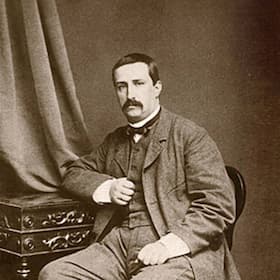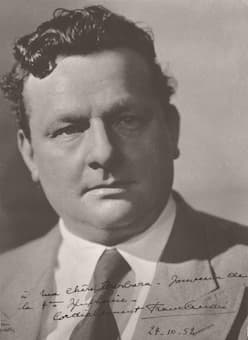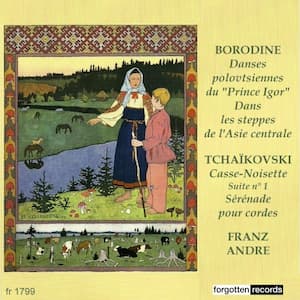
Alexander Borodin (1833)
In Alexander Borodin’s opera Prince Igor, left unfinished at the composer’s death, we have modern Russia of the 12th century fighting pre-modern Russia.
Prince Igor and his army are going to war against the Polovtsy who have attacked Russian lands. Igor leaves his wife in care of her brother, Prince Galitzky, who leads all his men in drunken parties now that Igor has left. When news comes that Igor’s army has been defeated, Prince Galitzky won’t go in support unless he’s named leader in place of Igor. At the Polovtsian camp, Igor is impressed by his captor, Khan Konchak, leader of the Polovtsians, and says that if they had been allies, they would have captured all of Russia. As the second act closes, the Polovtsian maidens dance and sing to entertain the prisoners (Polovtsian Dances).

The Polovtsy Camp by Ivan Bilibin (1930)
In the next two acts, Igor hears of Galitzky’s treason and escapes with one son, leaving another son behind who has fallen in love with Konchak’s daughter. Igor returns in triumph and Galitzky’s followers desert him.
Alexander Borodin was one of the Russian composers of the late 19th century who held a day job, being professor of chemistry at the Medical-Surgical Academy. He was also one of the composers brought together by Mily Balakirev to become part of the “The Five.” His chemistry career was such that he only had time for music in his spare time or when he was sick. Nonetheless, he produced symphonies, string quartets, a symphonic poem, and the opera Prince Igor.

Franz André
As part of The Five, which was dedicated to producing distinctly Russian music, the music Borodin wrote for Prince Igor fit exactly into that style. Because the [urban] Russians of Prince Igor were going off to fight the [rural] ethnics of the Polovtsian forces, it was an ideal situation for creating music that was exciting and ‘other.’ Think of how much this must have influenced a later composer such as Stravinsky when he was creating his pre-modern Russian world in The Rite of Spring.
If the music sounds familiar and you find yourself singing “Stranger in Paradise,” that’s because the music from Prince Igor and some of the string quartets was repurposed for the 1953 musical Kismet.
In this 1956 recording, Belgian conductor Franz André leads the Orchestre Symphonique de la Radiodiffusion National Belge. The orchestra was founded in 1935 by André, who led it until 1957.

Performed by
Franz André
Orchestre Symphonique de la Radiodiffusion Nationale Belge
Recorded in 1956
Official Website
For more of the best in classical music, sign up to our E-Newsletter

Ah, such music!!!!!! Borodin’s music is magic — mythical & magical. I could listen all day long. All this and a prominent chemist first. I believe in Heaven & will search for a place where Boridin’s compositions can be heard any timel